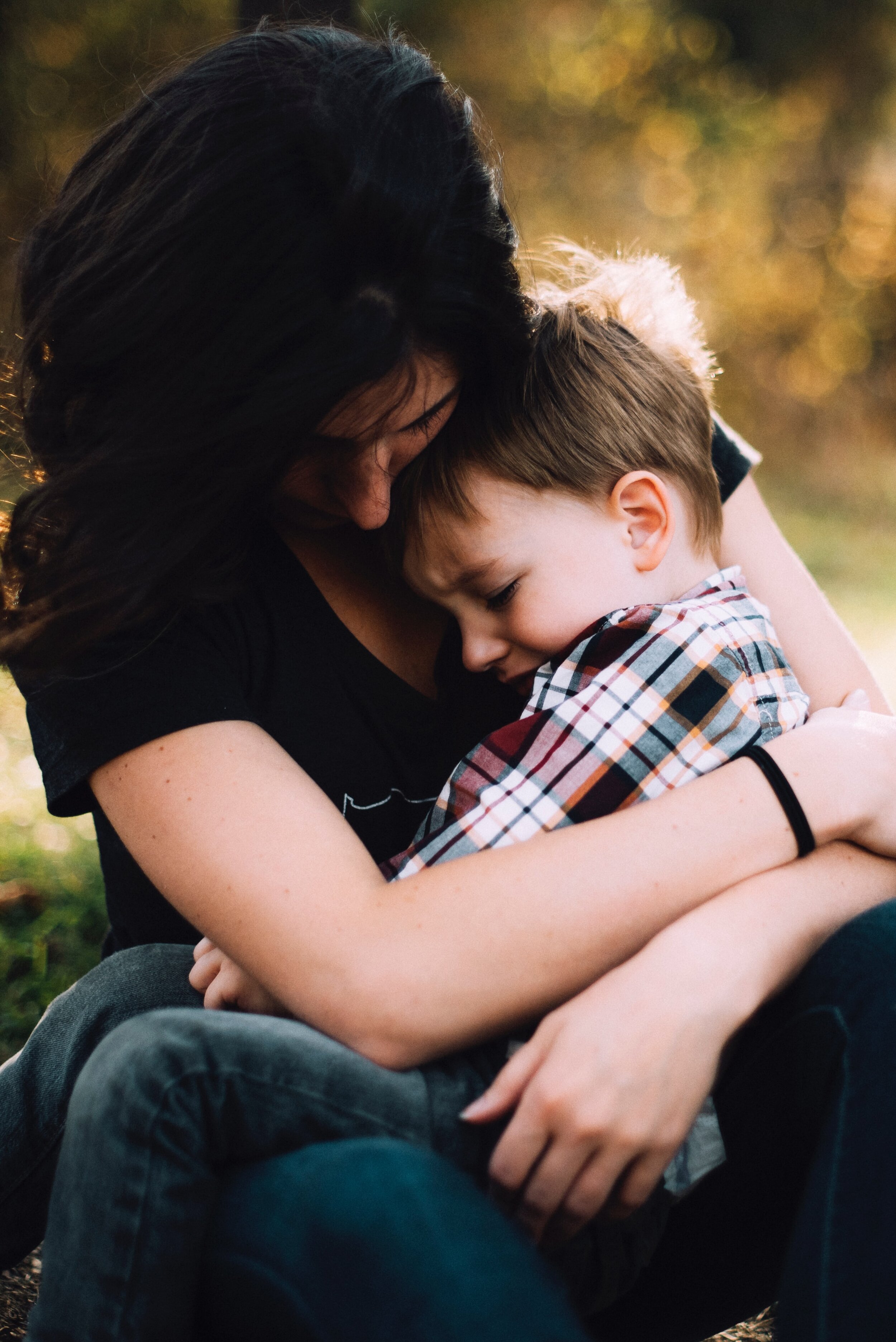Talking to Your Kids About Grief
We previously talked about how to process your own grief when you’re a parent and some of those tips included being honest with your kids about your own experience of grief. But what about when your kids are grieving? How do we talk to kids about grief? How do we help them process their own big feelings?
Be developmentally appropriate. I’m sure we all remember from childhood that death is a common theme in fairytales, cartoon, children’s books, and movies. But what kids do or do not actually understand may be a bit harder to discern. Encourage their questions and answer them as honestly as possible. Too much information freely given may be overwhelming but allowing their questions (even ongoing questions) and answering them as honestly as possible, even if that answer is “I don’t know” can help them to feel safe with you and around this issue that can be nebulous and scary for children.
Use plain language. I know that the initial pull when it comes to kids is to shield them or protect them, but I want you to remember being a kid for a minute, especially a little kid. There are so many euphemisms or sayings that kids take very literally because they don’t know better. This is not a situation where you want more confusion. Use words like “died” rather than “went to sleep” or “passed away”. You don’t want to create unnecessary secondary fears here.
Encourage them to express their feelings freely- whatever they may be. Similar to adults, kids’ feelings around grief can be complicated and many. They may feel sad, scared, anxious, angry, or frustrated. They may feel confused. They may not have words for how they feel. Encourage free expression. Try not to tell them how they “should” be feeling. To help facilitate this, you can tell stories about the loved one who is gone, read books on loss together, or do an art project.
Remember that kids grieve a little bit differently than adults. They may oscillate between being tearful and being playful – and that’s okay. Similarly to how some adults may throw themselves into work or a cause to protect themselves from the overwhelm of loss, kids will sometimes use play in this way. Some kids may appear to act “babyish” or take on characteristic of their much younger selves.
If a child plans to attend the funeral, help prepare them for that experience. Help them understand how it will work. If there’s an open casket, prepare them for that experience to the best of your ability. Take their lead. If they don’t want to walk up to the casket, don’t force them. If they don’t feel comfortable going to the funeral, don’t force them. If they need to take a break during the funeral, allow them to step outside and get some space. If they are not going to the funeral, plan something else to help memorialize their loved one. This can be a photo album, an event, or creating a touchstone (many companies will make jewelry from fingerprints of loved ones or from their ashes).
Expect them to have feelings for a while. Although kids are resilient, they have big feelings and they don’t just “forget”. Continue to support them as they navigate these changing feelings.
